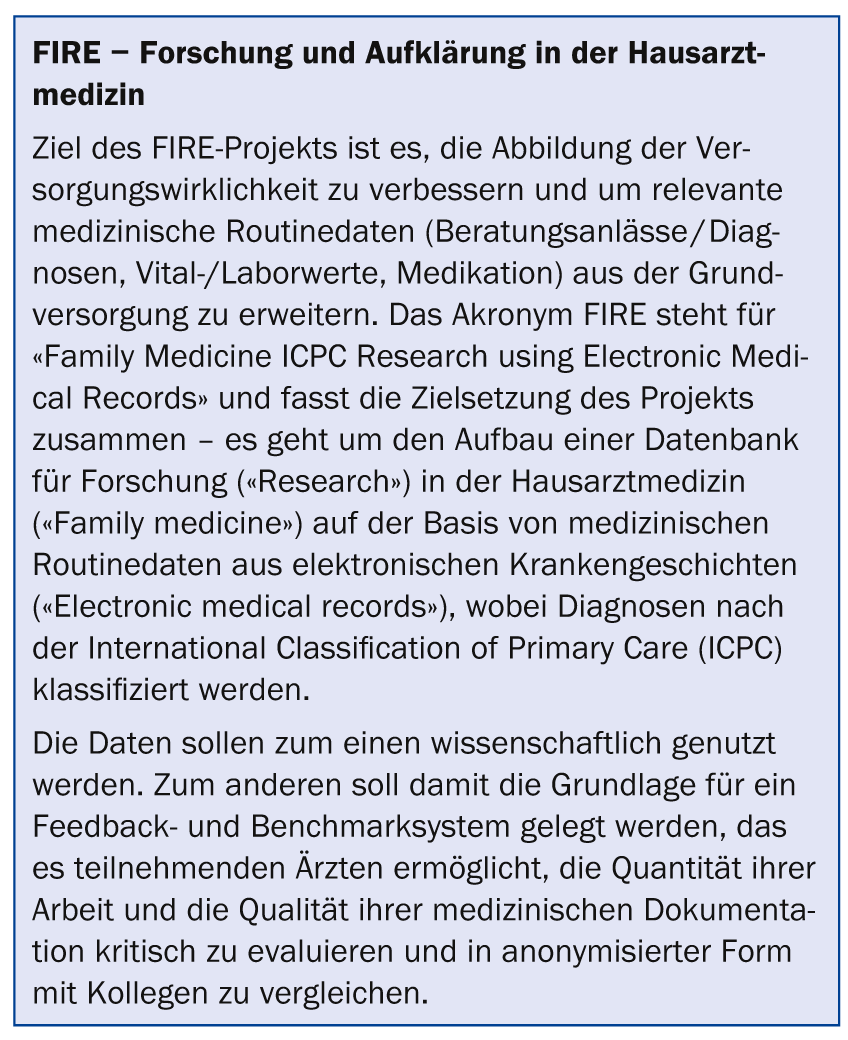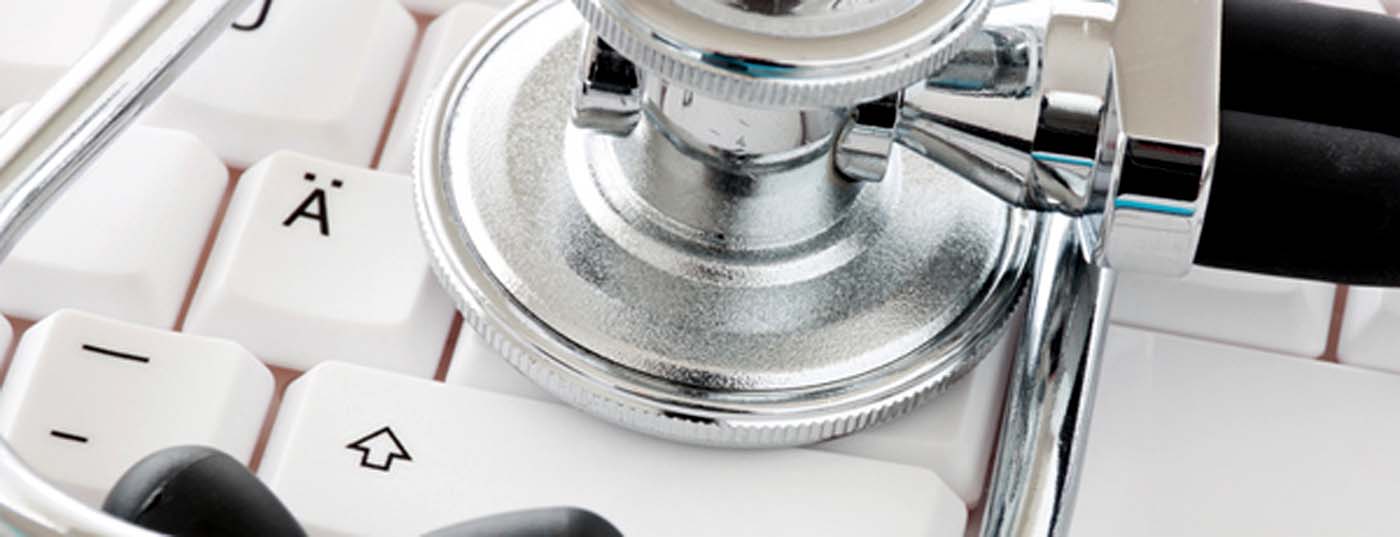Thanks to new software, a fully automated exchange of data between GP practices and the FIRE database of the Institute of Family Medicine at the University of Zurich is now possible. This will usher in a new eHealth era in Switzerland.
The Institute of Family Medicine at the University of Zurich (IHAMZ) has been collecting anonymized clinical data since 2009 as part of the FIRE project with the aim of enabling research projects with a clinical, epidemiological and care-related focus.
Primary care physicians submit their data, which they routinely collect during their patient consultations and store in their electronic health records (EHRs). Leading Swiss manufacturers of eKG software support the project.
Automatic and cheap
Until now, however, the software required a few mouse clicks to accomplish the data transfer between FIRE participants and IHAMZ’s FIRE database.
With the Swiss software manufacturer E-Medicus, a partner is now involved that makes FIRE participation easier for GPs: On the one hand, E-Medicus is launching the eKG software “E-General with FIRE Package”, which carries out the data export completely automatically. This eliminates the need for physicians to manually trigger data transmission. Secondly, E-Medicus will grant the first 50 GPs who opt for the FIRE package a discount of CHF 1000 on the annual fee for the first two years.
Aim of the action
With this campaign, the Institute of Family Medicine aims to promote the switch in family medicine practices from paper to eKG in order to provide area-wide evaluations for science and the family medicine community. E-Medicus primarily hopes to drive software development and networking among primary care providers. This will make it very easy for family physicians to support research in family medicine.
Highly secure data exchange
The automated export succeeds thanks to the proven Medical Connector network of H-Net, a leading and bank-certified Swiss service provider for data exchange in healthcare. The infrastructure, which has so far been used primarily for extramural data traffic from around 100 hospitals, radiology and laboratory facilities, guarantees that data is delivered to the FIRE database regularly, completely, highly secured and encrypted. Every day, H-Net processes over 10,000 medical reports. Physicians who want to use this software and deliver to the FIRE database only need to approve FIRE export once during system configuration.

Goal for the future
H-Net and E-Medicus are thus taking a pioneering role. The cooperation with the other Swiss software manufacturers who have supported the project so far continues. The new concept of automatic FIRE data exchange will be made available to them. This is intended to provide an impetus to sustainably modernize software technology in family practice.
HAUSARZT PRAXIS 2014; 9(10): 33-34











